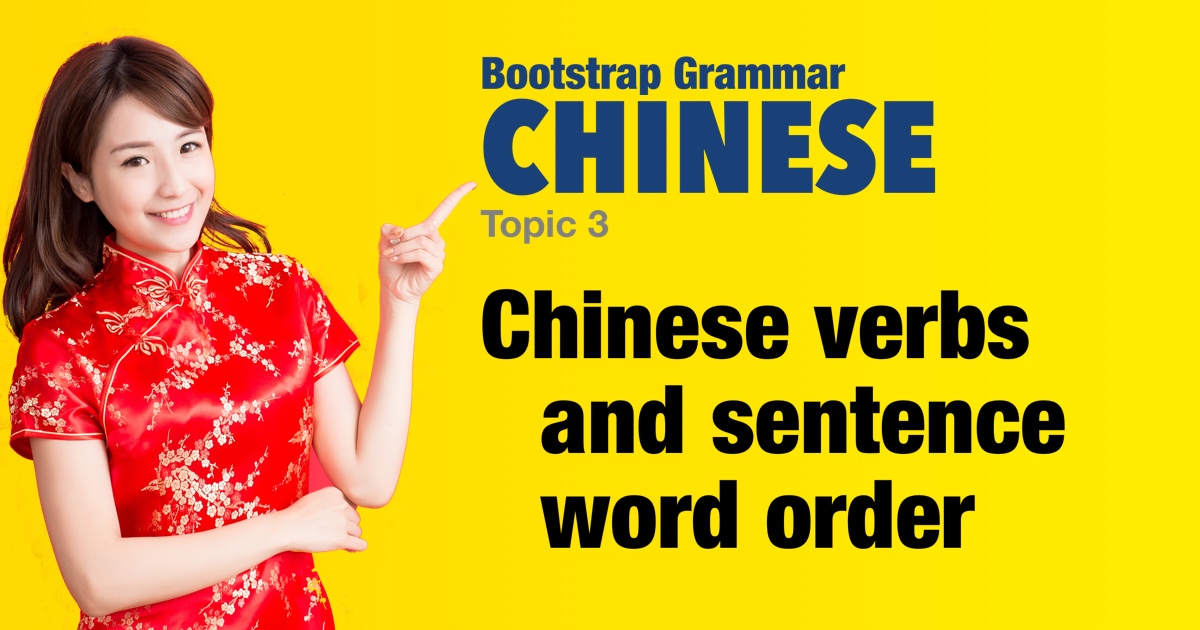Chinese grammar - Chinese verbs and sentence word order |
|||
|
|||
Verbs are words that express actions, states, or occurrences, like 'to be', 'to see' and 'to know'. We have already seen the Chinese verb 是 () which means 'to be'. As we saw previously, unlike in English, Chinese verbs do not conjugate according to person (or tense or number). But like in English, in a sentence Chinese verbs come between the 'subject' (who or what is doing the verb) and 'object' (the thing the verb is acting on). So the pattern is: [subject] + [verb] + [object]. — For instance: 我 [subject] + 是 [verb] + 学生 [object] — and: 他 ('He') [subject] + 吃 ('eats') [verb] + 米饭 ('rice') [object] — and: 她 ('She') [subject] + 喝 ('drinks') [verb] + 茶 ('tea') [object] |
| Examples: | |
|
我是学生。
wǒ shì xuéshēng. I am [a] student.
|
|
|
我吃米饭。
wǒ chī mǐfàn. I eat rice.
|
|
|
我喝茶。
wǒ hē chá. I drink tea.
|
|
|
他吃米饭。
tā chī mǐfàn. He eats rice.
|
|
|
她吃面条。
tā chī miàntiáo. She eats noodles.
|
|
|
我不吃米饭。
wǒ bù chī mǐfàn. I don't eat rice. |
|
|
他不吃米饭。
tā bù chī mǐfàn. He doesn't eat rice. |
|
|
中国人喝茶。
zhōngguó rén hē chá. [The] Chinese [person] drinks tea. |
|
|
他喝酒。
tā hē jiǔ. He drinks alcohol.
|
|
|
她喝咖啡。
tā hē kāfēi. She drinks coffee.
|
|
|
我不喝茶。
wǒ bù hē chá. I don't drink tea. |
|
|
老师不喝茶。
lǎoshī bù hē chá. [The] teacher doesn't drink tea. |
|
|
她不喝酒。
tā bù hē jiǔ. She doesn't drink alcohol. |
|
 |
|


 Word order:
Word order: 
